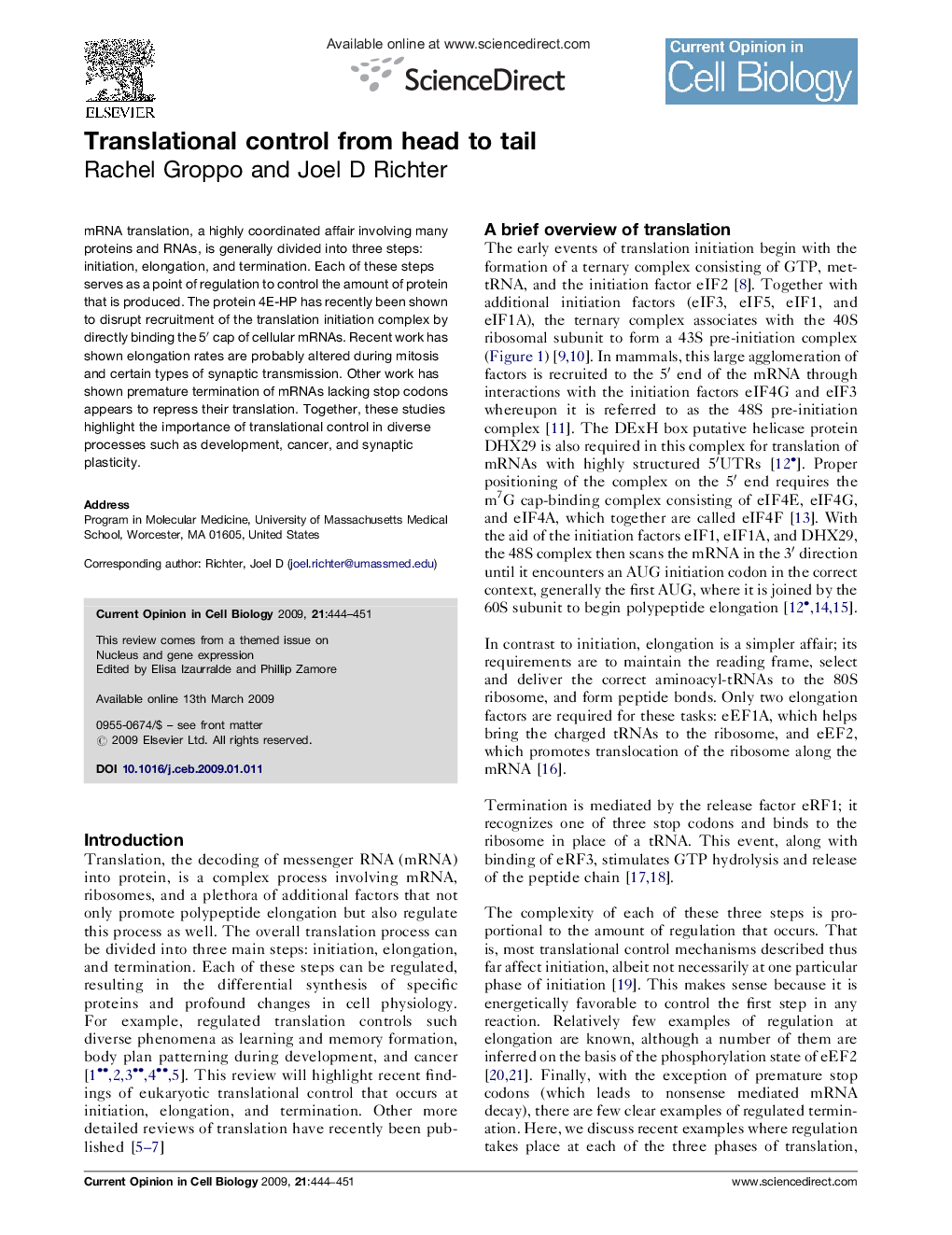| Article ID | Journal | Published Year | Pages | File Type |
|---|---|---|---|---|
| 2170040 | Current Opinion in Cell Biology | 2009 | 8 Pages |
Abstract
mRNA translation, a highly coordinated affair involving many proteins and RNAs, is generally divided into three steps: initiation, elongation, and termination. Each of these steps serves as a point of regulation to control the amount of protein that is produced. The protein 4E-HP has recently been shown to disrupt recruitment of the translation initiation complex by directly binding the 5â² cap of cellular mRNAs. Recent work has shown elongation rates are probably altered during mitosis and certain types of synaptic transmission. Other work has shown premature termination of mRNAs lacking stop codons appears to repress their translation. Together, these studies highlight the importance of translational control in diverse processes such as development, cancer, and synaptic plasticity.
Related Topics
Life Sciences
Biochemistry, Genetics and Molecular Biology
Cell Biology
Authors
Rachel Groppo, Joel D Richter,
